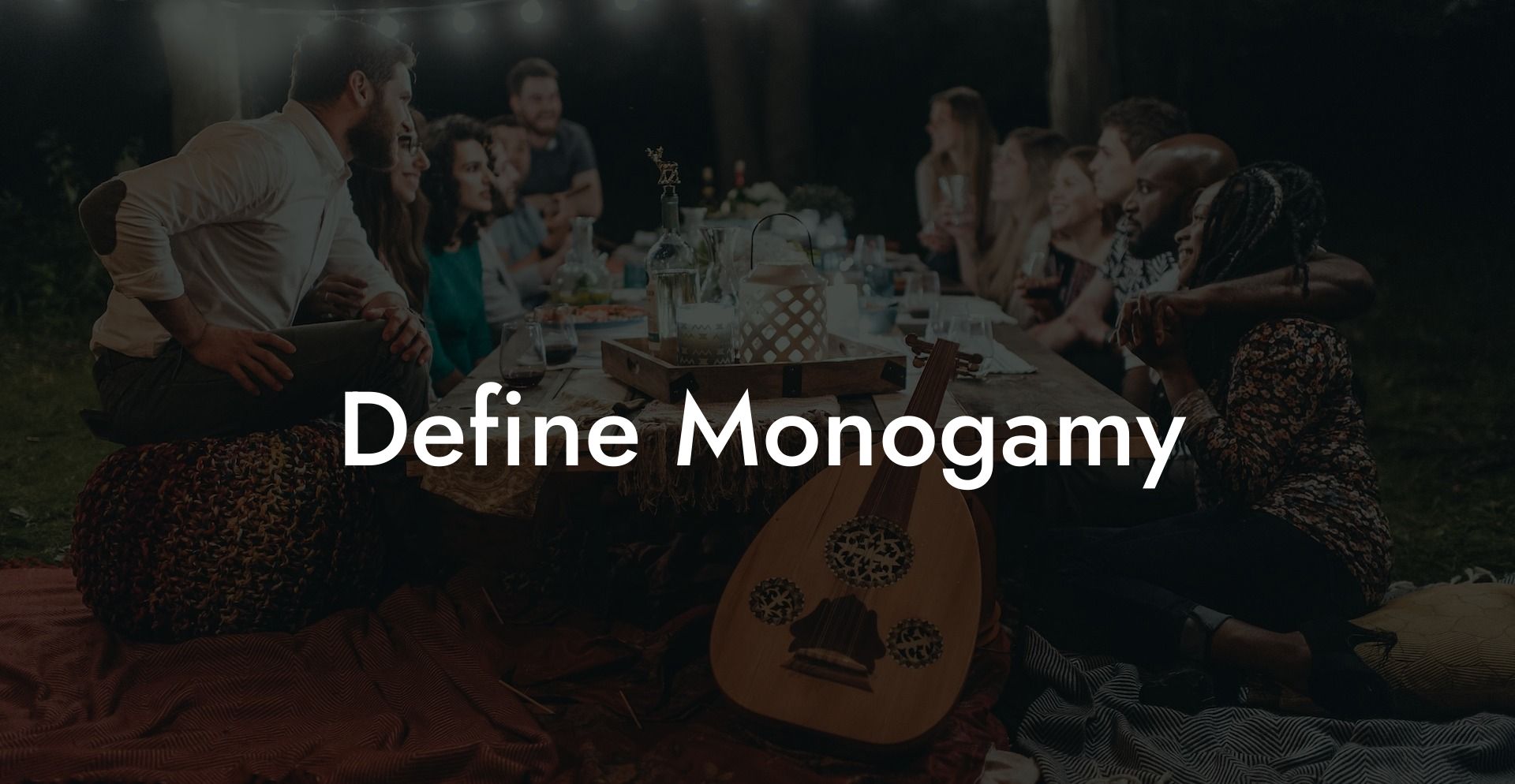In a rapidly changing world filled with new ideas and societal shifts, the concept of monogamy can sometimes feel like an antique relic from the past. But what exactly is monogamy, and how has it evolved over time? In this comprehensive guide, we delve into the fascinating world of monogamy, exploring its various dimensions, history, and modern implications. Join us, as we unravel the complex tapestry of what it truly means to be monogamous, and whether or not it's the right fit for you.
Define Monogamy Table of Contents
Monogamy, at its core, is defined as the practice or condition of being in a romantic and/or sexual relationship with only one partner at a time. Historically, monogamy has been primarily associated with marriage, but it has since extended to define the relationships of unmarried couples as well.
Formally, monogamous relationships can be categorized into two main types: social monogamy and sexual monogamy. Social monogamy is where individuals engage in long-term partnerships solely with one person, usually to raise offspring together. Sexual monogamy is when individuals engage exclusively in sexual activities with one partner.
While the two types of monogamy often overlap, they are not necessarily interchangeable, as there are instances of individuals engaging in extramarital affairs but remaining socially monogamous. Interestingly, monogamy is not exclusive to humans; many species of animals also exhibit monogamous behavior, such as swans, who stay with their partners throughout their lifetime.
The concept of monogamy has undergone significant transformation through the course of history. Changes in societal norms, gender roles, and individual expectations have significantly influenced how monogamy is perceived and practiced today. With the rise of hookup culture, non-monogamous relationships, and the ever-expanding realm of online dating, many people are now exploring alternative ways of forming and maintaining relationships.
Define Monogamy Example
To better understand the complexities of modern monogamy, let's consider the following scenario. Alice and Bob have been in a committed, monogamous relationship for several years. They live together, share joint finances, and intend on marrying in the future. Recently, they have found themselves ingiting discussions on the nature of their relationship and its boundaries, wondering if monogamy is the best choice for them.
Alice finds herself attracted to the idea of polyamory, a form of non-monogamy in which individuals maintain multiple romantic and/or sexual relationships concurrently, with the consent of all parties involved. Bob, however, feels strongly about maintaining a monogamous partnership, valuing the exclusivity and comfort it provides. In this situation, both parties must engage in open and honest communication to understand each other's perspectives and reach a decision that works best for their relationship, whether that is remaining monogamous, pursuing polyamory, or exploring other options.
In conclusion, the concept of monogamy is subjective and complex, constantly evolving with the ever-changing landscape of human connection. As we navigate this fascinating terrain, it is essential to reflect on our own relationships and what truly resonates with our individual desires and values.
If this article has sparked your curiosity and compassion, we invite you to share it with friends, family, or that special someone in your life. Furthermore, explore other guides on The Monogamy Experiment for a deeper understanding of the myriad ways we can relate and love one another.













